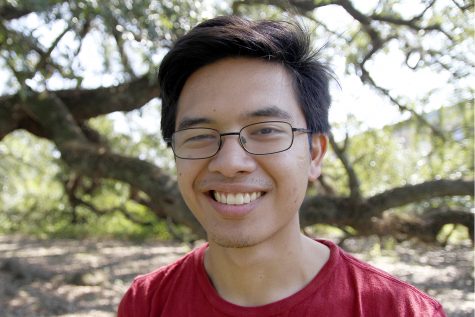The Department of Biological Sciences wraps up “Branching Out with STEM” as it reaches the end of its funding.
Instructor of Biological Sciences Dr. Tara Turley-Stoulig headed the program. “Branching Out with STEM” began in fall 2015 and was funded by a grant from the Louisiana Board of Regents. It encouraged an interest in STEM among high school students. The university partnered with Northshore Technical Community College and the program involved about 130 participating high school students from Hammond High Magnet School, St. Thomas Aquinas, Northlake Christian and Lakeshore High.
“It will help them in a multitude of ways,” said Turley-Stoulig. “One, I think it will provide advanced education in genetics so that they can better understand some of the things that they hear about genetics in the news, in media and help them educate their family members so they may take what we learn and tell their parents about it, tell their siblings about it. I think it will also interest them in the sciences more, more broadly speaking in STEM.”
Turley-Stoulig recruited and trained undergraduate biology majors in the spring semester to assist her. The program was subdivided into four days during the fall semester. Two days involved teaching at a high school. Another two days involved hands-on lab work at the university or the NTCC campus. Students isolated and tested DNA from snack foods for genetically modified sequences in one lab.
“It’s a more intense genetics focused program,” said Turley-Stoulig. “We discuss DNA on a molecular level, likely at a greater level of detail than you’d hear about in gen bio. We talk about human genetic disease, likely more than you’d hear about in your gen bio course. I tend to do a lot of it in my gen bio course ‘cause I’m a human geneticist but not all teachers teaching that would do that as much as I do. We also talk about GMOs, which you’re not gonna hear about in your gen bio course typically. We talk about how they’re made, what are benefits, what are some current concerns, what are misconceptions of those things.”
Turley-Stoulig’s proposal ranked first in proposals recommended for funding and received $52,288. The idea for “Branching Out with STEM” grew from a smaller program with no hands-on component.
“When I came to work at Southeastern, maybe two years in, I wrote a small internal grant that was funded by the Center for Faculty Excellence here that provided funds to buy equipment for computers and projectors and stuff like that to go out and give some presentations in high schools,” said Turley-Stoulig.
Turley-Stoulig intended for the program to attract more students to STEM disciplines.
“There’s a variety of reasons why we need students to go into these areas but at the same time this impression by many that it’s too hard for me, I think if we expose students at an earlier age to some of these things, they’ll become interested,” said Turley-Stoulig. “They’ll see how cool some of this stuff is, and maybe they’ll be more motivated to tackle what may seem harder.”
The future of the program will depend on funding.
“I would like to apply for some larger grants,” said Turley-Stoulig. “I’m very interested in applying for funding that would expand this program, continue what we’re already doing but also expand it. So while I don’t think we’ll be in full force with something like this next year, I’m gonna be in the process of developing and writing another grant to continue this and build on it.


